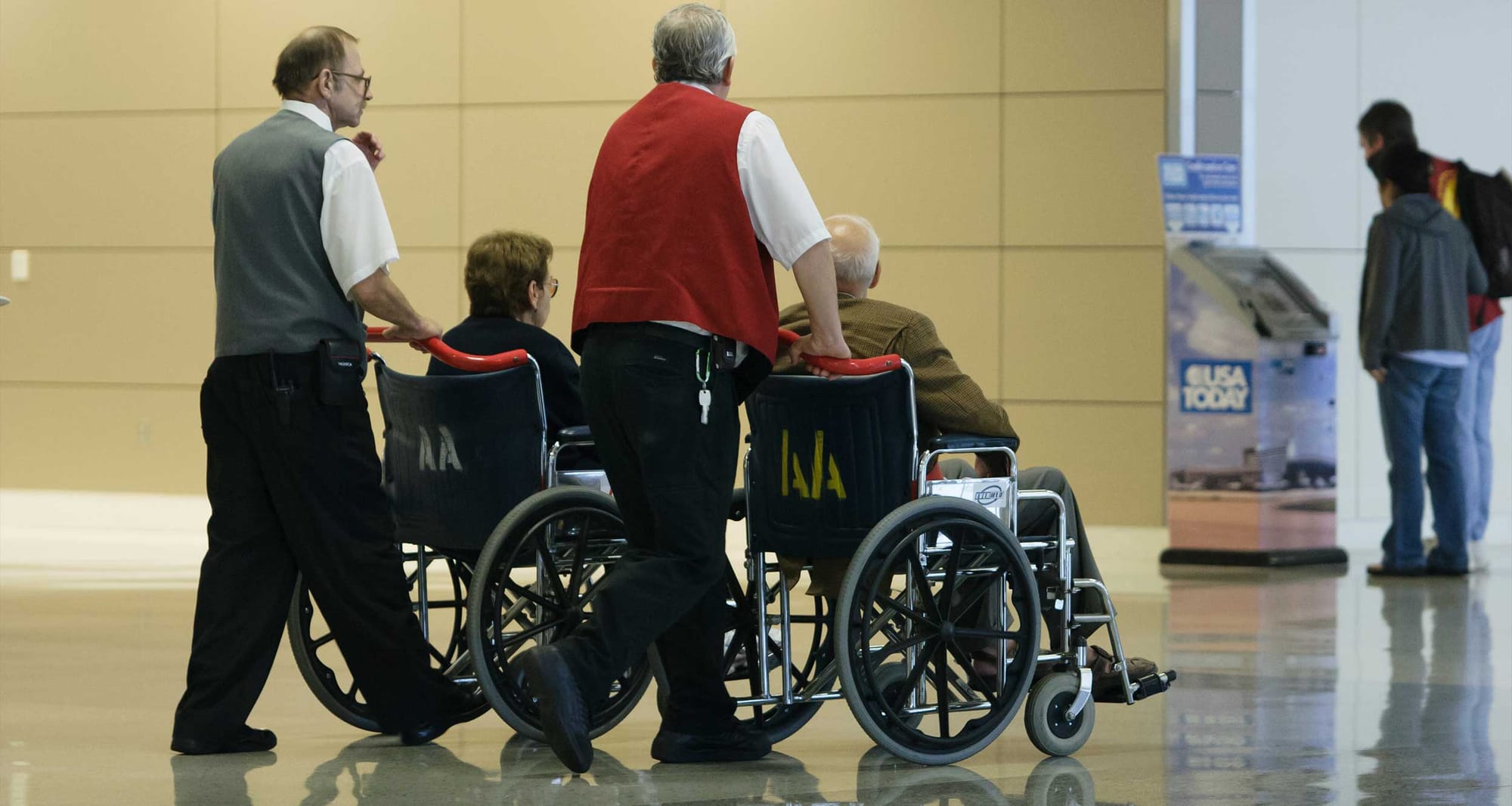The Coronavirus Aid, Relief, and Economic Security Act (CARES Act), signed into law on March 27, 2020, includes up to $32 billion of payroll support for passenger airlines, cargo air carriers and third-party contractors serving the industry. As a condition of receiving support, companies must “refrain from conducting involuntary layoffs or furloughs” or reducing the pay of their employees through the end of September.
Disbursements to major U.S. airlines have already begun and their employees have largely been protected from a disruption in pay. But that employment security has not extended to the wheelchair attendants, cabin cleaners and catering staff typically employed by contractors.
The Service Employees International Union (SEIU), which represents more than 32,000 employees of airline contractors, said that a delay of $3 billion in relief for the industry and their members has resulted in widespread layoffs. The group warned that a significant delay in the approval of applications and disbursement of payments by the U.S. Treasury is “creating exactly the disaster lawmakers sought to avoid: massive layoffs among aviation workers.”
Wheelchair attendants and special assistance personnel, who are critical to ensuring accessibility for travelers with disabilities, have been particularly hard hit as demand for air travel has plummeted and relief has been delayed.
“I’ve been working at LAX since 2004,” said ABM wheelchair attendant Alba Melgar. “Now getting furloughed will affect me as I will no longer have health insurance, and with this pandemic it’s absolutely necessary to have it. It would not be fair for the airlines to get all this federal money and leave a lot of us without a job.”
Since the CARES Act was passed, SEIU reports that more than one-third of its members — some 13,000 people — have been laid off. If the rate of layoffs is consistent across the country, SEIU estimates that as many as 65,000 airline contractor employees are now unemployed.
It remains unclear when the Treasury will distribute payroll support to airline contractors and, until that occurs, thousands more are expected to lose their jobs. For those who remain on the job, their income has been substantially reduced with fewer opportunities to supplement base pay with tips.
This “fast-motion disintegration of the workforce” could lead to difficulties in the airline industry’s recovery. When demand for air travel returns, companies will be forced to hire new workers, many of whom will lack the training necessary to care for passengers needing assistance. This, the SEIU says, raises concerns about the safety, continuity and security of services in the future.















